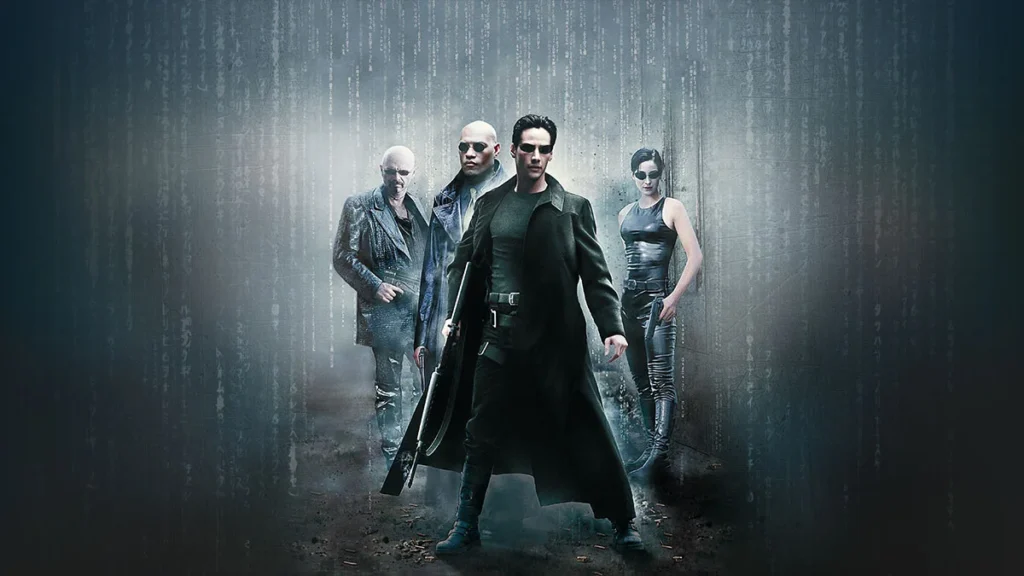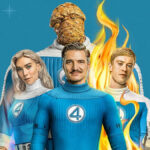When The Matrix burst onto the scene in 1999, it redefined the science fiction genre with its mind-bending premise, groundbreaking special effects, and philosophical themes. The Wachowskis’ film followed computer hacker Neo (Keanu Reeves) as he discovers the world he knows is actually a simulated reality called the Matrix, created by machines to subdue the human population. With the help of rebel leader Morpheus (Laurence Fishburne) and Trinity (Carrie-Anne Moss), Neo unlocks his potential as “The One” and wages war against the machines to free humanity.
The Matrix wowed audiences with its innovative “bullet time” visual effects, slick martial arts action, and heady explorations of perception, reality, free will, and what it means to be human. It spawned two sequels, The Matrix Reloaded and The Matrix Revolutions, and has left an indelible mark on pop culture in the decades since its release.
If you’re a fan of The Matrix looking for more films that play with reality, bend your mind, and make you ponder deep philosophical questions, look no further. Here are 15 of the best movies like The Matrix that any science fiction fan should check out.
1. Inception (2010)
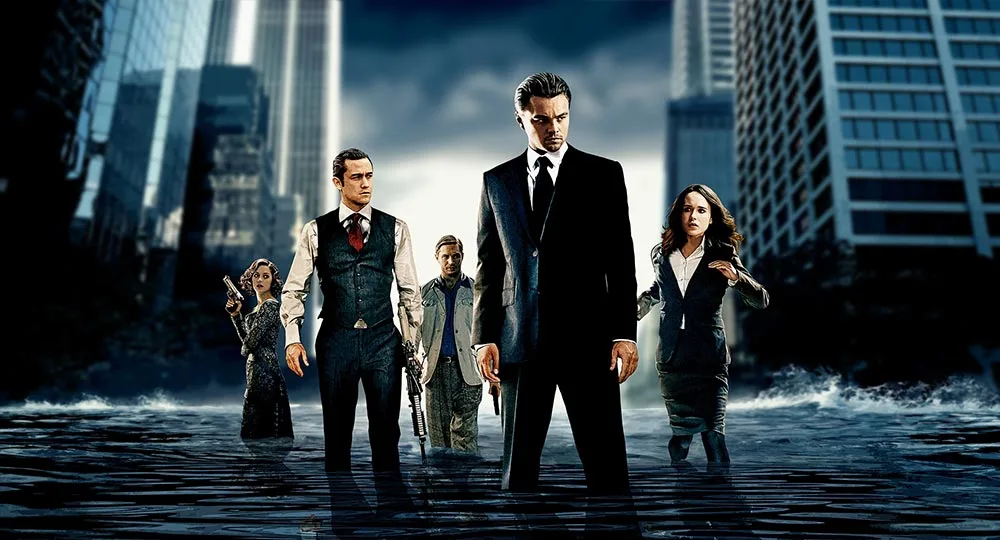
Inception is the most obvious choice for any list of movies like The Matrix, and for good reason. Christopher Nolan’s 2010 film stars Leonardo DiCaprio as Cobb, a professional thief who infiltrates the subconscious minds of his targets to steal secrets and plant ideas. Cobb is offered a chance to regain his old life as payment for a task considered to be impossible: “inception”, the implantation of another person’s idea into a target’s subconscious.
Like The Matrix, Inception is a visually stunning film that takes place across multiple layers of constructed reality. It explores similar themes of perception vs. reality and features mind-bending set pieces like a fight scene in a rotating hallway and a climax that cuts between simultaneous action in different levels of the dream world. The ambiguous ending will also leave you pondering and debating its true meaning long after the credits roll.
2. Dark City (1998)

Dark City actually predates The Matrix by a year but flew a bit more under the radar. The neo-noir science fiction film stars Rufus Sewell as John Murdoch, a man suffering from amnesia who finds himself suspected of murder. As Murdoch investigates what happened to him, he uncovers a labyrinthine conspiracy in a world where the very fabric of reality—memories, identity, the city itself—is manipulated by a group of mysterious Strangers.
Directed by Alex Proyas, Dark City is a visually striking film with a similar dark, oppressive atmosphere to The Matrix. The plot provides a compelling mystery while exploring questions of memory, identity, and humanity’s place in the universe. Roger Ebert named Dark City the best film of 1998, comparing it to Metropolis and 2001: A Space Odyssey in terms of visual achievement and ambitious storytelling.
3. eXistenZ (1999)

eXistenZ is a science fiction body horror film written and directed by David Cronenberg. The film stars Jennifer Jason Leigh as Allegra Geller, a game designer who becomes trapped inside her own virtual reality game, eXistenZ, with a young marketing trainee named Ted Pikul (Jude Law). As their adventures inside the game world blur the lines between reality and illusion, they discover that sinister conspiracies may be lurking in both worlds.
Cronenberg is known for his visceral, often disturbing explorations of technology’s impact on the human body and psyche. With eXistenZ, he crafts a world where video game consoles are organic, flesh-like pods that plug into bio-ports in the users’ spines. The film keeps you constantly guessing what’s real and what’s part of the game, making it a trippy experience that pairs well with The Matrix.
4. The Thirteenth Floor (1999)

The Thirteenth Floor is a neo-noir science fiction film loosely based on the novel Simulacron-3 by Daniel F. Galouye. In late 1990s Los Angeles, Hannon Fuller (Armin Mueller-Stahl) owns a multi-billion-dollar computer enterprise and has developed a new VR simulation of 1937 Los Angeles. When Fuller is murdered, his friend and protégé Douglas Hall (Craig Bierko) becomes the primary suspect. As Hall investigates the crime, he uncovers earth-shattering secrets about his world and identity.
The Thirteenth Floor came out the same year as The Matrix but was overshadowed by the Wachowskis’ film. While not as revolutionary, it’s still a solid, thought-provoking film that explores the implications of simulated realities and artificial intelligence. The period recreation of 1930s LA inside the simulation is also impressive. Some critics like Slavoj Žižek have argued The Thirteenth Floor is the more philosophically sophisticated film compared to The Matrix.
5. Paprika (2006)

Paprika is a Japanese animated science fiction film directed by Satoshi Kon, based on the 1993 novel by Yasutaka Tsutsui. The film is set in the near future, where a device called the “DC Mini” allows the user to view people’s dreams. The head of the team working on this treatment, Dr. Atsuko Chiba, begins using the machine illegally to help psychiatric patients outside of the research facility. She does this by assuming her alter-ego, a sentient persona named Paprika, in the dream world.
Paprika is a wildly imaginative, surreal trip through the subconscious that visualizes dreams in breathtaking animation. The film gets increasingly bizarre as dreams and reality start to blend together in a similar way to Inception. Filled with stunning images and mind-bending concepts, Paprika is an underrated animated gem that fans of The Matrix‘s exploration of layered realities will appreciate.
6. Source Code (2011)

Source Code is a science fiction thriller directed by Duncan Jones and starring Jake Gyllenhaal. Gyllenhaal plays Colter Stevens, a U.S. Army pilot who wakes up in the body of another man and discovers he’s part of a top-secret military operation called “Source Code.” The program enables him to take over someone’s identity in the last eight minutes of their life. Colter’s mission is to find the bomber of a Chicago commuter train and prevent a larger attack downtown.
Source Code puts a clever spin on the “repeating loop” formula made famous by Groundhog Day. The film’s central conceit of sending someone’s consciousness into another person’s body during their final moments is an intriguing one, and it’s used to build a compelling mystery with some great twists and turns. While not as action-packed as The Matrix, Source Code is a smart, well-crafted sci-fi thriller with an emotional core.
7. The Cell (2000)
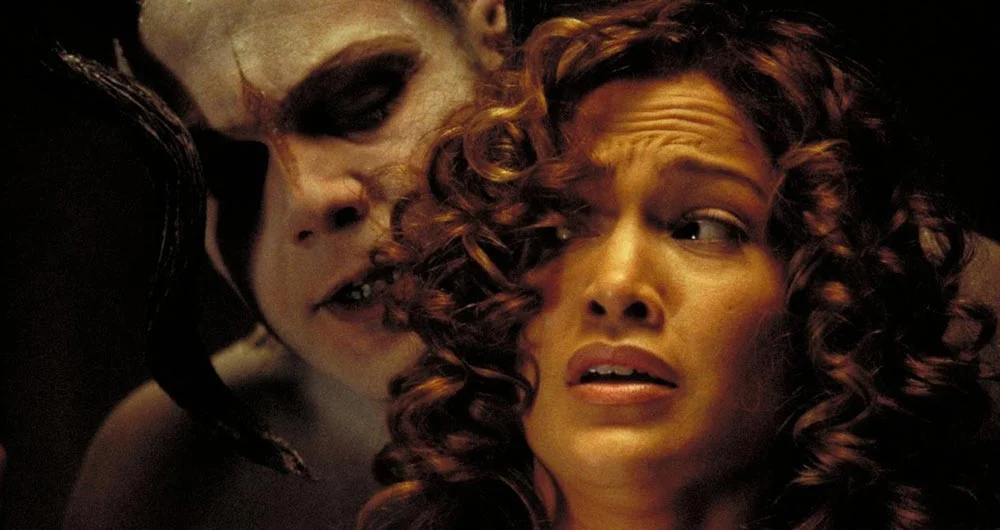
The Cell is a science fiction psychological horror film directed by Tarsem Singh in his directorial debut. Jennifer Lopez stars as Catherine Deane, a child psychotherapist who has been using an experimental virtual reality device to enter into the minds of comatose patients to coax them out of their catatonic state. When the FBI asks Catherine to enter the mind of a sadistic serial killer to help them locate his latest victim, she embarks on a terrifying journey through his twisted psyche.
The Cell is a visually stunning film filled with bizarre, often disturbing imagery inside the killer’s mind. Tarsem, who started out directing music videos, brings a lush, surreal visual style to the subconscious dreamscapes. For fans of The Matrix‘s exploration of entering virtual worlds, The Cell offers a dark, nightmarish spin on that concept with no shortage of striking visuals.
8. Blade Runner 2049 (2017)
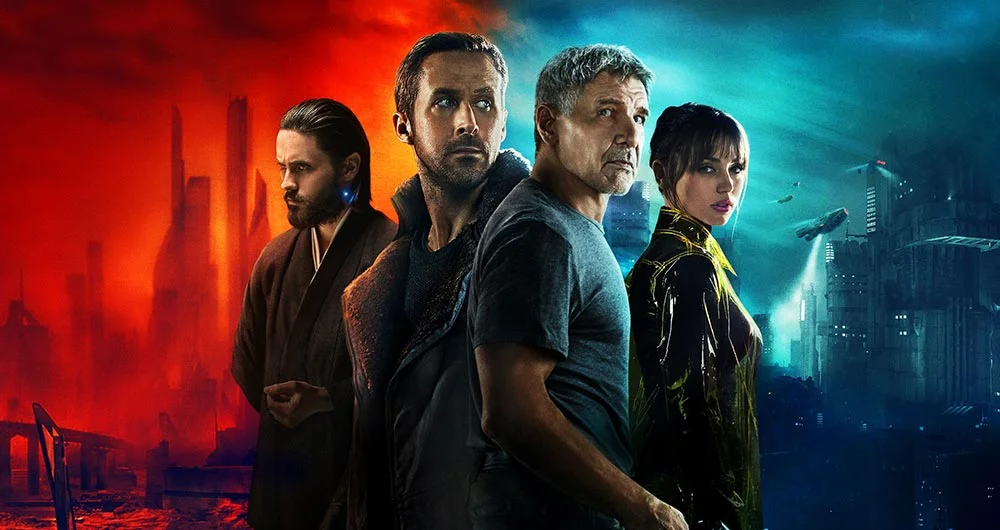
A sequel to Ridley Scott’s groundbreaking 1982 neo-noir Blade Runner, Blade Runner 2049 is set thirty years after the events of the first film. Ryan Gosling stars as “K”, a Nexus-9 replicant who works as a “blade runner” hunting down rogue older model replicants. When K uncovers a secret that threatens to destabilize the uneasy balance between humans and replicants, he sets out to find Rick Deckard (Harrison Ford), the original blade runner who has been missing for 30 years.
Directed by Denis Villeneuve, Blade Runner 2049 is a visually breathtaking film that expands upon the themes and world-building of the original. Like The Matrix, it grapples with questions about what it means to be human in a world of artificial beings. Gosling’s stoic performance anchors the film’s slow-burn mystery, building to a thought-provoking and emotionally resonant climax.
9. Ghost in the Shell (1995)

Ghost in the Shell is a Japanese animated science fiction film based on the manga series by Masamune Shirow. The film is set in 2029 Japan and follows Motoko Kusanagi, a cyborg public security agent hunting a mysterious hacker known as the Puppet Master. As Kusanagi digs deeper into the case, she begins to question her own identity and humanity in a world where the lines between human and machine have blurred.
Ghost in the Shell was a major influence on The Matrix, with the Wachowskis even showing the film to producer Joel Silver to help pitch their vision. The film’s exploration of consciousness, artificial intelligence, and cyborg identity was groundbreaking, paving the way for other cyberpunk and sci-fi anime. The 1995 film still holds up today with its gorgeous animation, atmospheric score, and thought-provoking ideas.
10. Minority Report (2002)

Based on a story by Philip K. Dick, Minority Report is a science fiction action film directed by Steven Spielberg and starring Tom Cruise. The film is set in 2054 Washington, D.C., where a special police unit called “PreCrime” apprehends criminals based on foreknowledge provided by three psychics called “precogs.” Cruise plays John Anderton, the head of PreCrime, who is forced to go on the run when the precogs predict that he will commit a murder.
Minority Report shares The Matrix‘s slick visual style and paranoid vision of the future, while adding Spielberg’s penchant for propulsive action. The film’s central conceit of arresting people before they commit crimes based on deterministic predictions raises fascinating questions about free will and inevitability. Cruise’s strong performance grounds the heady material, making this one of Spielberg’s most underrated films.
11. The Truman Show (1998)

The Truman Show stars Jim Carrey as Truman Burbank, a man who has unwittingly been the star of his own reality TV show since birth. Everyone in Truman’s life, including his wife and best friend, are actors, and his idyllic hometown is an elaborate set. As Truman starts to notice strange occurrences in his world, he begins to question the nature of his reality and sets out to discover the truth.
While The Truman Show has a lighter tone than The Matrix, it explores similar themes about the nature of reality and breaking free from a fabricated world. The film was remarkably prescient in its satirizing of reality TV and the media’s manipulation of truth. Carrey’s heartfelt performance proves he can excel in dramatic roles, and the clever script keeps you engaged as Truman slowly puts the pieces together.
12. Vanilla Sky (2001)

A remake of the 1997 Spanish film Open Your Eyes, Vanilla Sky stars Tom Cruise as David Aames, a wealthy playboy whose life is upended after a car accident leaves him disfigured. As David tries to piece his life back together, he becomes entangled with his on-and-off lover Julie (Cameron Diaz) and a new woman named Sofia (Penélope Cruz). But David’s reality keeps shifting in disorienting ways, leading him to question his sanity and perceptions.
Directed by Cameron Crowe, Vanilla Sky is a trippy, mind-bending film that keeps you constantly guessing what’s real. The film explores similar ideas as The Matrix about dream worlds and constructed realities, while adding a romantic element with Cruise and Cruz’s relationship. The twisty plot will keep you engaged as the film builds to its shocking conclusion.
13. Eternal Sunshine of the Spotless Mind (2004)

Eternal Sunshine of the Spotless Mind stars Jim Carrey and Kate Winslet as Joel and Clementine, a couple who erase each other from their memories after a painful breakup. As Joel undergoes the memory-erasing procedure, he decides he wants to hold onto his memories of Clementine and tries to hide her in the deepest recesses of his mind.
While not strictly a science fiction film, Eternal Sunshine uses its memory-erasing conceit to explore the nature of identity, love, and loss. Like The Matrix, it features characters grappling with the malleability of their own minds and perceptions. Director Michel Gondry employs surreal, inventive visuals to depict Joel’s subconscious, crafting a poignant and deeply human story.
14. World on a Wire (1973)

World on a Wire is a two-part German television series directed by Rainer Werner Fassbinder, based on the same novel that inspired The Thirteenth Floor. The series follows Fred Stiller (Klaus Löwitsch), a cybernetics engineer who uncovers a massive corporate conspiracy and cover-up involving a computer-simulated world populated by “identity units” who believe they are real.
Shot in 16mm and filled with stark compositions, World on a Wire has a gritty, paranoid feel that pairs well with The Matrix‘s dystopian tone. It’s remarkable to see many of The Matrix‘s ideas being explored in this nearly 50-year-old film, a testament to its ahead-of-its-time storytelling. At over three hours long, World on a Wire is a slow burn, but it’s a rewarding watch for fans of cerebral science fiction.
15. Brazil (1985)

Directed by Terry Gilliam, Brazil is a dystopian science fiction film set in a retro-futuristic world dominated by a totalitarian government with an oppressive bureaucracy. Jonathan Pryce stars as Sam Lowry, a low-level government employee who daydreams of heroism and romance as an escape from his dreary life. When Sam encounters Jill (Kim Greist), a woman who resembles the girl of his dreams, he becomes entangled in a web of mistaken identities and conspiracies.
Brazil shares The Matrix‘s vision of a bleak future where humanity is controlled by machines, with Gilliam’s film focusing more on the dehumanizing effects of bureaucracy and consumerism. The film brilliantly blends satire, dark comedy, and stunning visuals, creating a unique and unforgettable cinematic experience. Sam’s journey to break free from his oppressive reality mirrors Neo’s arc in The Matrix.
These 15 films each offer something special for fans of The Matrix, whether it’s exploring similar themes about the nature of reality, identity and free will, or delivering mind-bending visuals and high-concept sci-fi premises. From anime classics to arthouse films to big-budget blockbusters, these movies will make you question the world around you and ponder what it means to be human in an increasingly artificial world. So plug in, open your mind, and prepare to have your reality altered by these incredible films.
